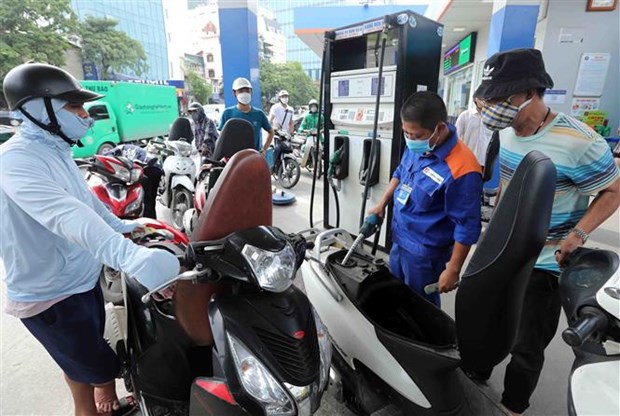HCMC – The Ministry of Finance again proposed the Government lower the most-favored-nation (MFN) tariff on unleaded gasoline to 10% from 20%, instead of 12% as earlier suggested, apart from efforts to cut the environmental protection tax on fuels to the floor level.
The Finance Ministry has sent a dispatch asking the Ministry of Justice to appraise a draft Government decree on adjusting the MFN import tariff for gasoline.
The tax rate adjustment will still ensure that there is room left for negotiating new free trade agreements (FTA) in the future and that additional obligations in Vietnam’s international commitments will not arise.
Regarding leaded gasoline, there is almost no import and the domestic production and use of this product are no longer permitted. Therefore, the Finance Ministry suggested keeping the MFN tax rate on this product unchanged.
As for other oil products, the Finance Ministry proposed the Government maintain the current MFN import tariff of 7%.
The current FTA import tax rate for oil under the ATIGA with ASEAN countries and the FTA with South Korea has been cut to zero percent, so the import turnover linked to the MFN import tax rate is insignificant.
The Finance Ministry proposed the Government approve and issue the decree immediately.
The ministry explained that under the ATIGA, the FTA import duty rate for gasoline will be cut to 5% by 2023 and to zero percent by 2024. Therefore, it is appropriate to impose a 10% MFN import tax rate on gasoline products, ensuring a reasonable gap between the MFN tax rate and the FTA tax rate for gasoline.
If the global fuel market shows further complicated developments which lead to an adjustment of the MFN import duty rate for gasoline, the Finance Ministry will have a timely report to the Government to make changes.
The reduction in the MFN tariff is expected to leave a positive impact on production and daily activities, creating favorable conditions for businesses to import fuels from various countries and thus increasing the competitiveness of this product, the ministry said.









